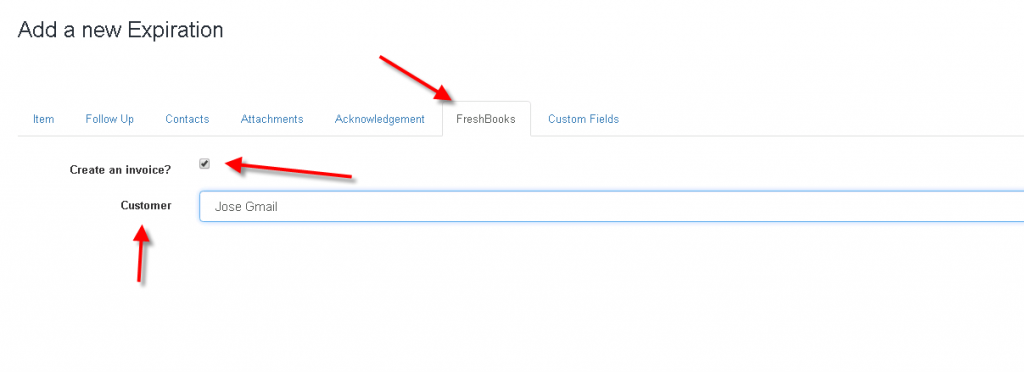Find out how to integrate your Freshbooks with Expiration Reminder
Expiration Reminder integrates with FreshBooks and allows you easily import employees and customers and also create invoices when items expire reducing your data entry times.
Things to know before you begin
-
Contacts in Expiration Reminder are matched with customers in FreshBooks based on their email address. Make sure that email addresses in both systems are up to date and that they match for the same users.
-
Contacts in Expiration Reminder are matched with employees in FreshBooks based on their email address. Make sure that email addresses in both systems are up to date and that they match for the same users.
-
You need to have a FreshBooks account already created and be Admin to be able to connect to FreshBooks.
Setting up the FreshBooks integration
If you already have an Expiration Reminder account and want to integrate with your FreshBooks account, click on Your Name on the top-right corner menu and then on Integrations in the drop-down.
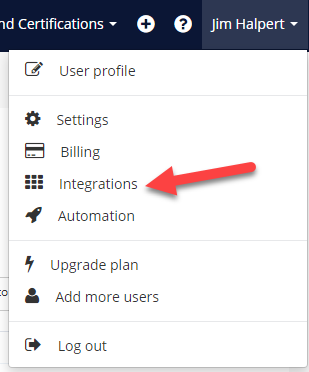
On the screen, look for FreshBooks under accounting. Click on the green Connect button.

If you are already logged into your FreshBooks account, it will prompt you to Authorize right away. Otherwise, a login page will pop-up before you will have access to Authorize.
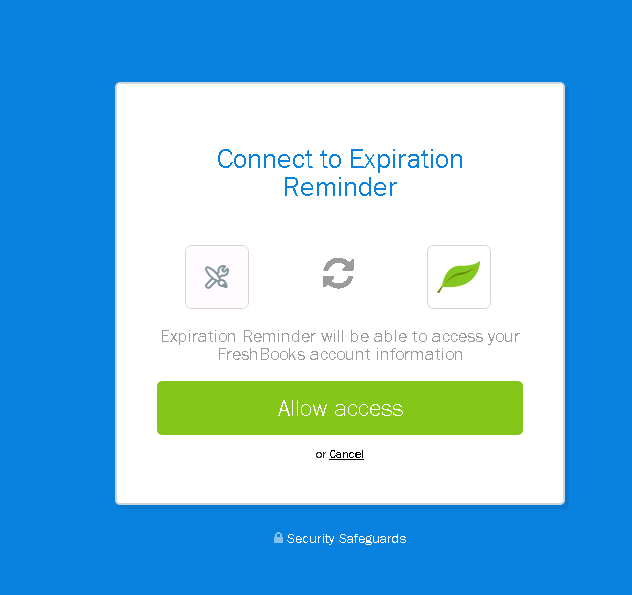
Once you Connect and Authorize the integration, you will need to configure FreshBooks for your Expiration Reminder account.
Configuration options
You can configure your FreshBooks integration by going to Your Account on the top and clicking on Integrations. From there, look for FreshBooks and click on the blue Configure button.

You can configure the following options for FreshBooks on Expiration Reminder:
-
Business: Select the business on FreshBooks where invoices will be created and staff and clients will be imported.
Business: Select the business on FreshBooks where invoices will be created and staff and clients will be imported.
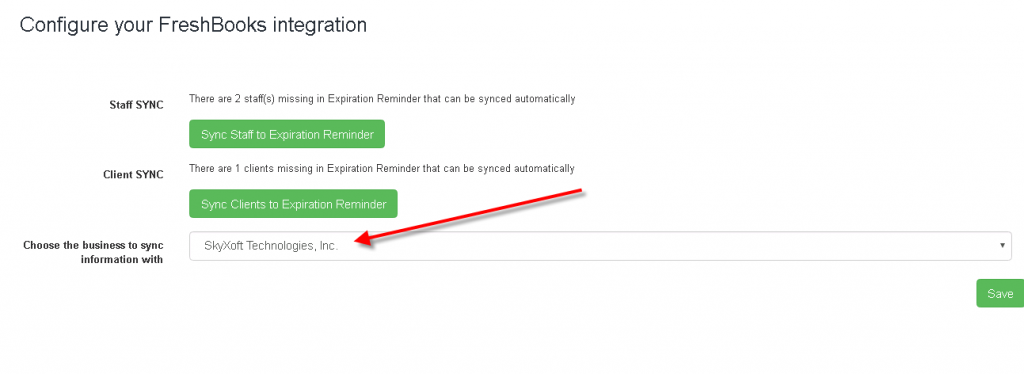
Syncing staff users
You can sync users from FreshBooks into Expiration Reminder so you can assigned them as contacts on expiration items. Any synced user will be added as a contact on Expiration Reminder.
If there any users that can be synced automatically, it will indicate so on the configuration screen. Just click on the Sync Staff to Expiration Reminder and the process will start automatically.
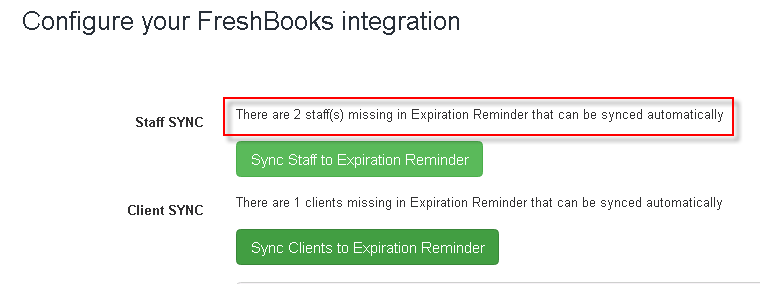
For users that can’t be sync automatically, the green button will show with the message Manually Sync Staff to Expiration Reminder. Click on the button and a screen will show with details about users on FreshBooks that aren’t on Expiration Reminder.
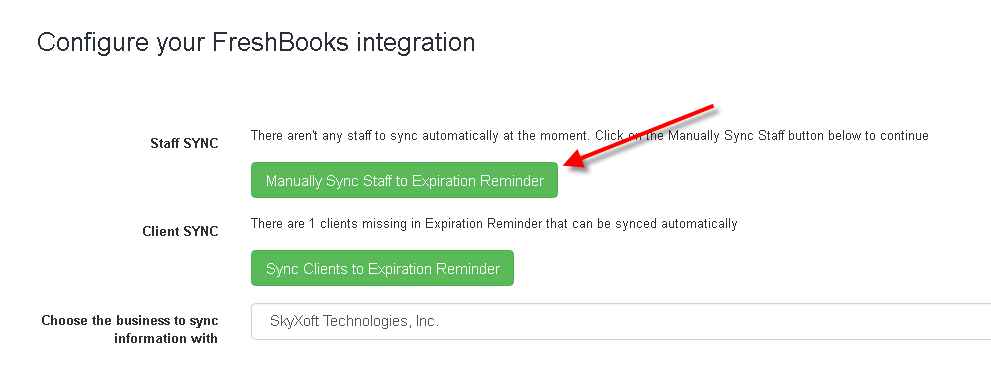
You can add the users just by clicking on the Add link button and they’ll be added as contacts automatically.

If you’d like to Ignore a user, just click on the ignore link and it won’t show up on the users to be synced table.

Syncing clients
You can sync clients from FreshBooks into Expiration Reminder so you can assigned them as contacts on expiration items. Any synced client will be added as a contact on Expiration Reminder.
If there any clients that can be synced automatically, it will indicate so on the configuration screen. Just click on the Sync Clients to Expiration Reminder and the process will start automatically.
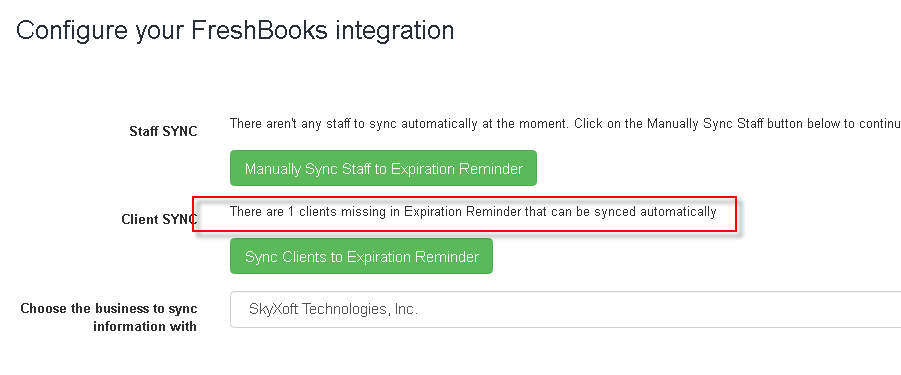
For clients that can’t be sync automatically, the green button will show with the message Manually Sync Clients to Expiration Reminder. Click on the button and a screen will show with details about clients on FreshBooks that aren’t on Expiration Reminder.
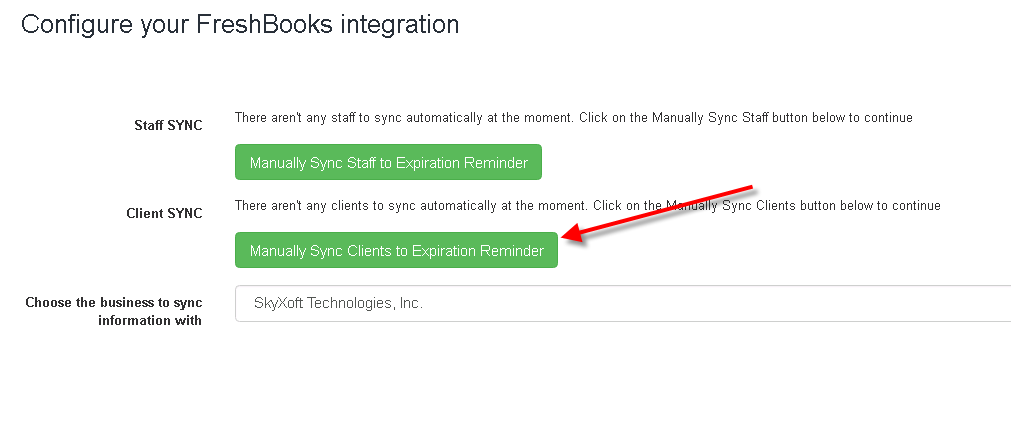
Creating an invoice
Expiration Reminder also allows you to create a FreshBooks invoice when an item is about to expire. This allows to reduce the entry time on FreshBooks and is useful if you’re tracking expiration dates for contracts for example.
To configure an expiration item to create an invoice when is about to expire, click on the FreshBooks tab when creating or editing item. In the screen tick the checkbox Create an invoice and then select the customer to whom the invoice will be attached to. Keep in mind the customer had to be previously synced from FreshBooks into Expiration Reminder.
